Georgian drug wars
- 20.04.2017
- 36203
Who we talk to?
 David Subeliani – activist, one of the leaders of “White Noise” movement who advocates for all-sorts drugs decriminalization in Georgia. The movement struggle takes places at police stations, ministries and parliament offices and just at streets and squares.
David Subeliani – activist, one of the leaders of “White Noise” movement who advocates for all-sorts drugs decriminalization in Georgia. The movement struggle takes places at police stations, ministries and parliament offices and just at streets and squares.
Against what do they fight?
Although Georgia has partially decriminalized use of cannabis, local drug policy still remains one of the most repressive in the world. More than 300,000 people – almost 10% of Georgia's population – have been street tested for drug use over the past seven years. People get 6-8 years in prison for the scanty number of substances, which the police find under a microscope in the laboratory.
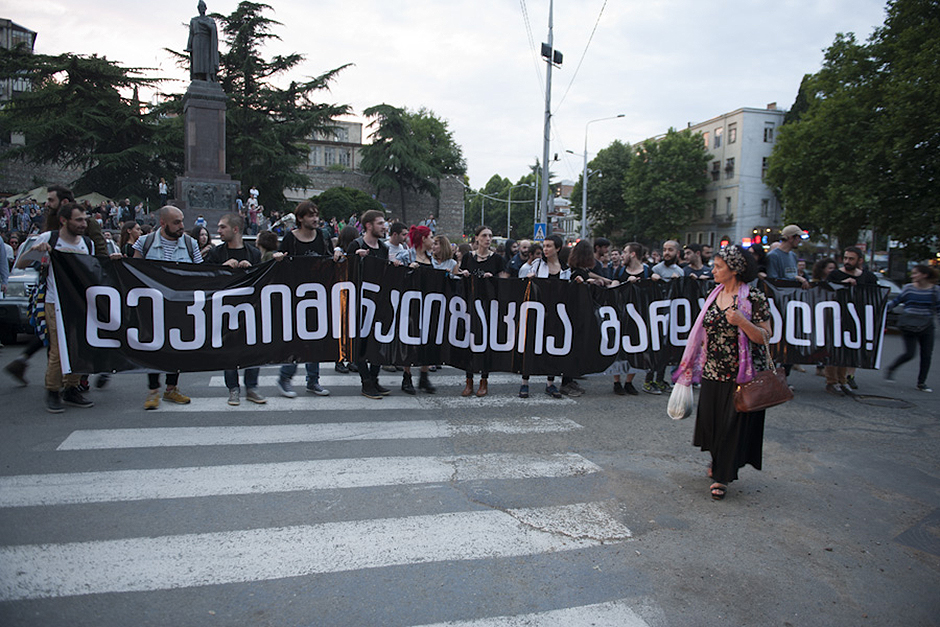
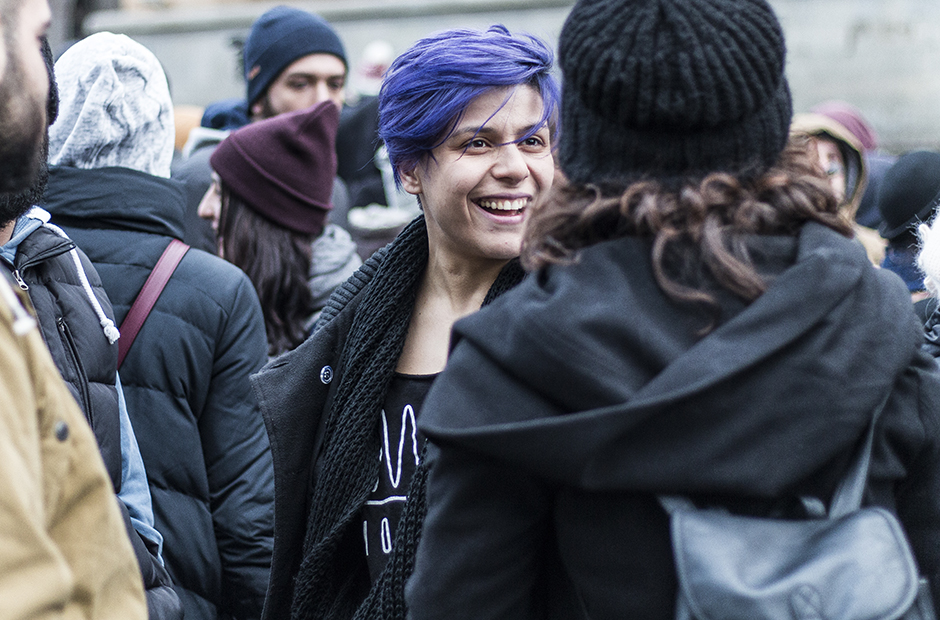
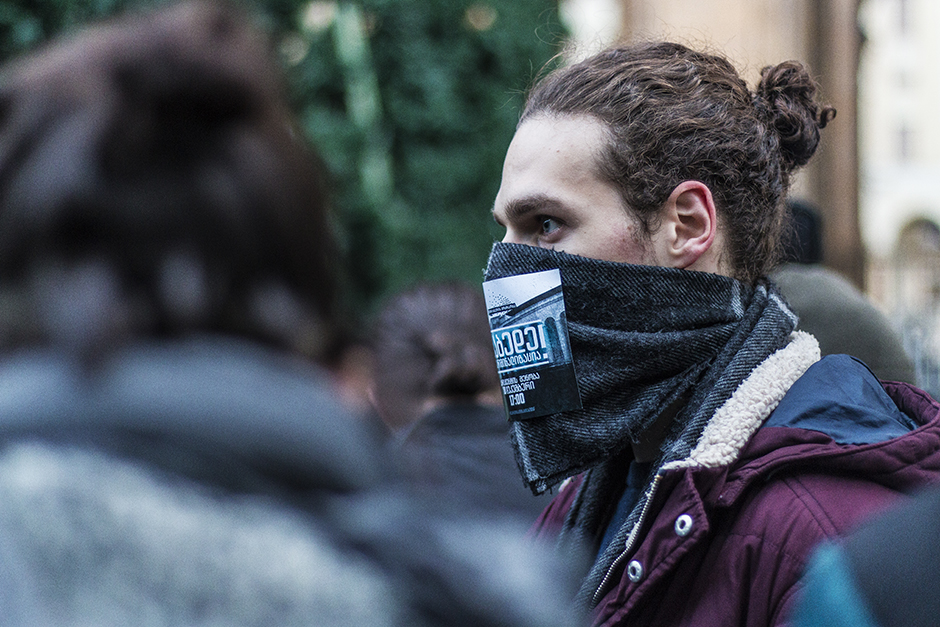
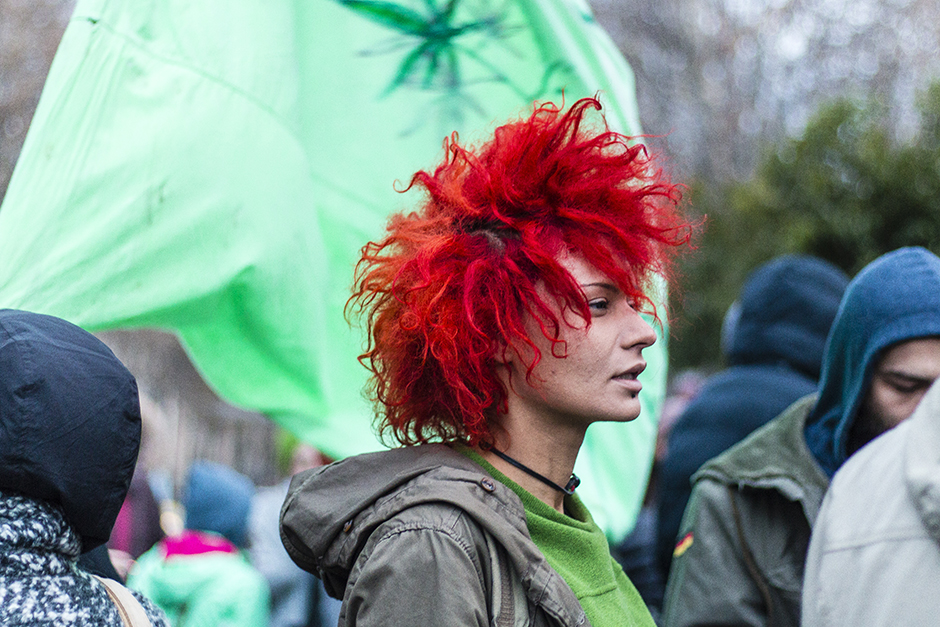
− David can you tell me a little about the beginning of the organization activity?
– Formally “White Noise” is not an organization but a horizontally controlled group of people who believe that it’s necessary to do everything for changing unhuman drug policy in the country. It started in 2013 with a history if one guy – an artist Beka Tsikarashvili. The police caught him with 65 grams of cannabis for what he was threatened with 6-8 years in prison. Somehow based on his story a different media campaign (than used to be before) was started. It was held under the slogan “Becka is not a criminal!” and simply told about the guy’s life and his family. What is a typical attitude to a person who use drugs? Like to a junkie, a goner; people have little sympathy and solidarity to such kind of persons. That accident was something different. It became obvious that there is something wrong with drug policy in the country. People began to talk about it. The campaign was lasting a few months and was leaded by Beka’s friends, very energetic people who protested in an uncommon way creating information noise in the city and country. The case received wide public attention. The police and the government retreated – and as a result, he didn’t go to jail, and the case was closed.
Then something surprising happened. We appealed to the Constitutional Court on the unconstitutionality of adjudication which hung over Beka. The judges reviewed it for a few months, and we won the case! It was a great victory. Not only because Beka avoided prison sentence, but also because hundreds of prisoners on the same accusing were immediately released.
«What is a typical attitude to a person who use drugs? Like to a junkie, a goner»
It gave extra energy and new strength to the struggle, became an enormous impulse to the movement expansion, and in December 2015 we started to run the campaign “White noise”. Its concept is to do much hype in the society, which will be uncomfortable for the authorities. For three and a half years, “White noise” has become a real brand in Georgia.
Many organizations say that the state should be allowed to carry out gradual changes. But there is no time for gradual changes, we must completely change the policy in this area right now. We stand for the need of taking public agreement that drug users are not criminals. Our request is to agree on the issue, and then we can discuss the details. It is our goal, our vision.
Now we have 3-4 constitutional cases. One of them concerns the fact that the cultivation of narcotic plants cannot be punished by prison. Another case: the size of the doses that are considered to be non-criminal. People are punished even for tiny dozes of “krokodil” [desomorphine. – 34mag] in Georgia. Certainly, it isn’t cool to use it, but people do. Police find tiny dozes which remains in the needles after usage under laboratory microscopes, and people get 6-8 years in jail for it.
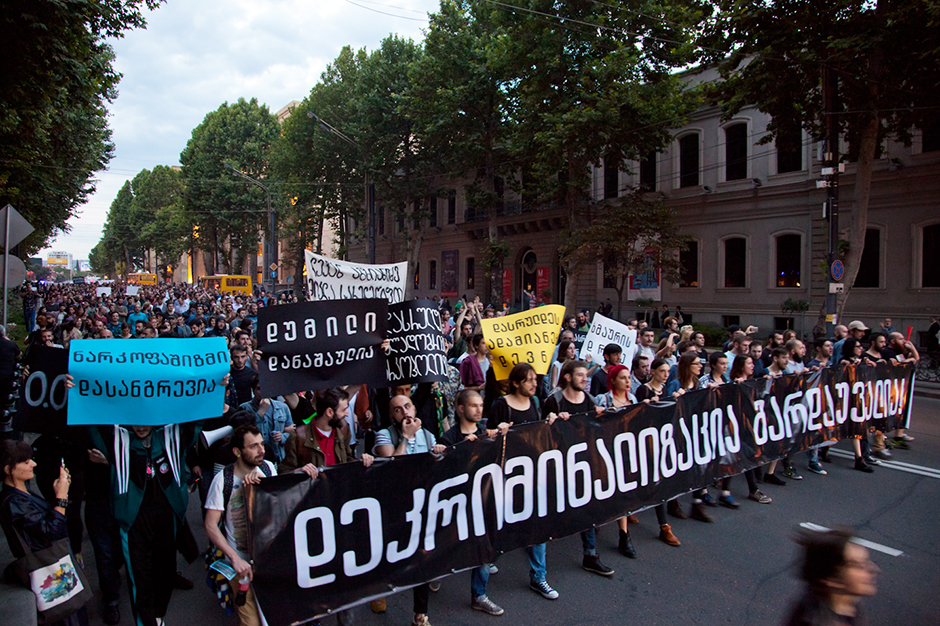
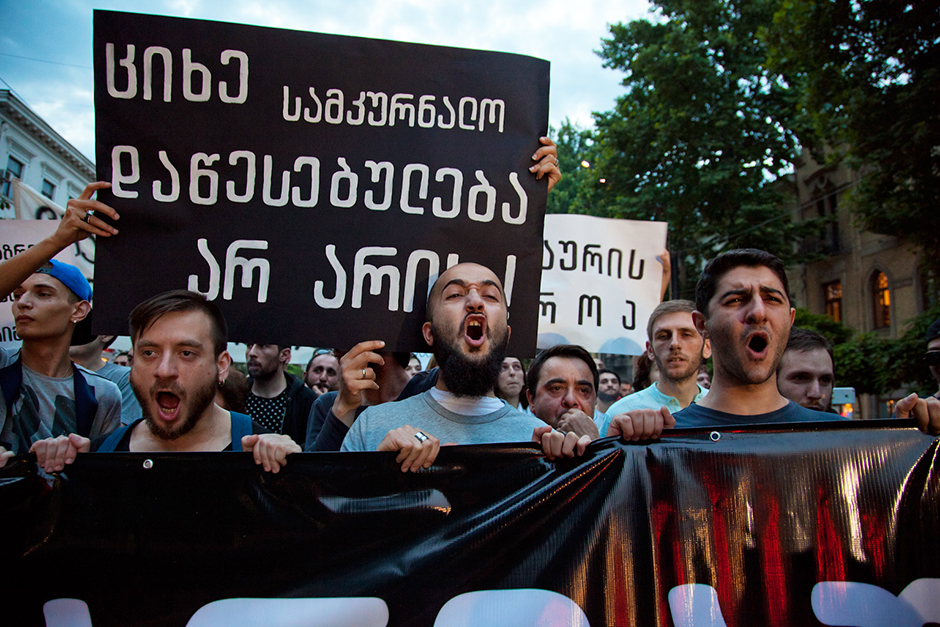
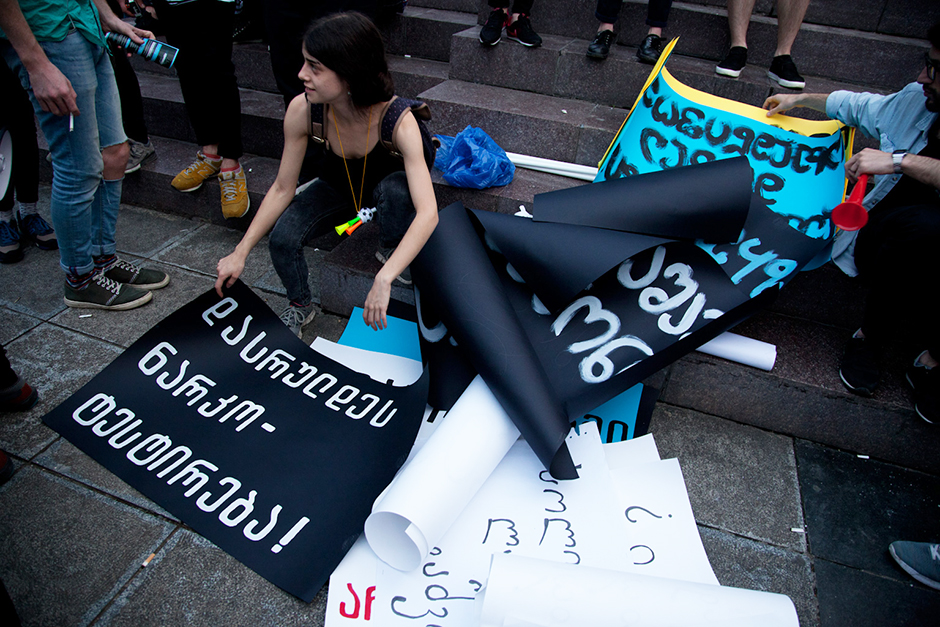
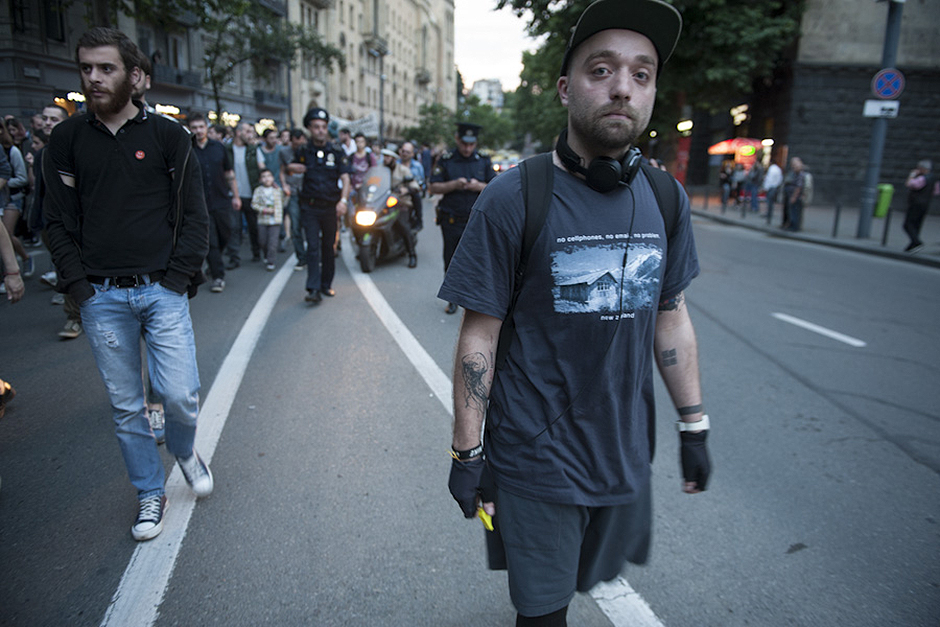
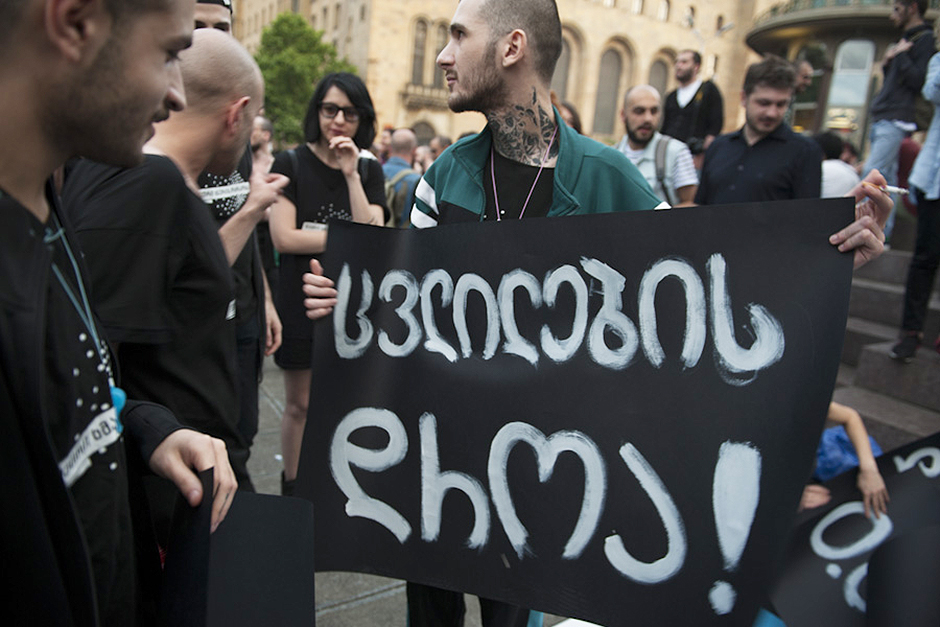
− The news about partial decriminalization of drugs which spread around the world in last December, is it your merit?
− In fact, the news agency didn’t correctly interpret what had happened. There are two constitutional regulations, which technically even haven’t started working: about dry and wet marijuana. They say that the storage of up to 70 grams of cannabis in a dry form, or up to 200 grams in the wet cannot be regarded as a criminal offense, which leads to the punishment of a prison, cause this is against the constitution. So now if you get caught with such weight for the first time, a court may declare you a criminal, but you can’t be imprisoned. Therefore, it can’t even be called a decriminalization.
So far, the drug possession in Georgia is a criminal offense. Very, very small amount can be considered as goods. Of the 270 drug in the list of prohibited substances two-thirds don’t have the gradation (min / medium / large). This gives to the court an ample opportunity to decide how to penalize: with an imprisonment or a fine. For example, desomorphine doesn’t have the “minor amount”. This means that even if you get caught with 0,000-something, it automatically goes to as “extra-large” dimensions, and you get the maximum number of years in jail. The new generation of synthetic drugs in general are not subject for administrative regulation, only criminal. No matter what you get caught, with use or storage, it automatically becomes a matter of criminal court. The law is so clumsy that most people who deal with drugs, end up with a prison or a fine of 30-40 thousand lari (€ 12 000-15 000). Due to one night in a club people sell their property.
«They can just come to you at the street and say: “Hey, seems you are high, follow me”»
To decriminalize all kinds of substances, we propose to define the relevant permitted number of storage for each of them. For example, in Portugal, it is up to 10 grams of heroin for 10 days. Expert calculations were made, and so was decided. We propose to determine the three-day dose permitted for all substances: cannabis, medical psychoactive substances, heavy and soft drugs. That end we consulted with doctors and experts to make such kind of regulations with the amount of substances you can’t be put in prison.
There are 50 thousand people (more than 1% of the population) using hard drugs in Georgia. Only 5000 of them can use the substitution (methadone) therapy. And the state spends 3-4 times more money on the penalty to imprisonment content and street testing.
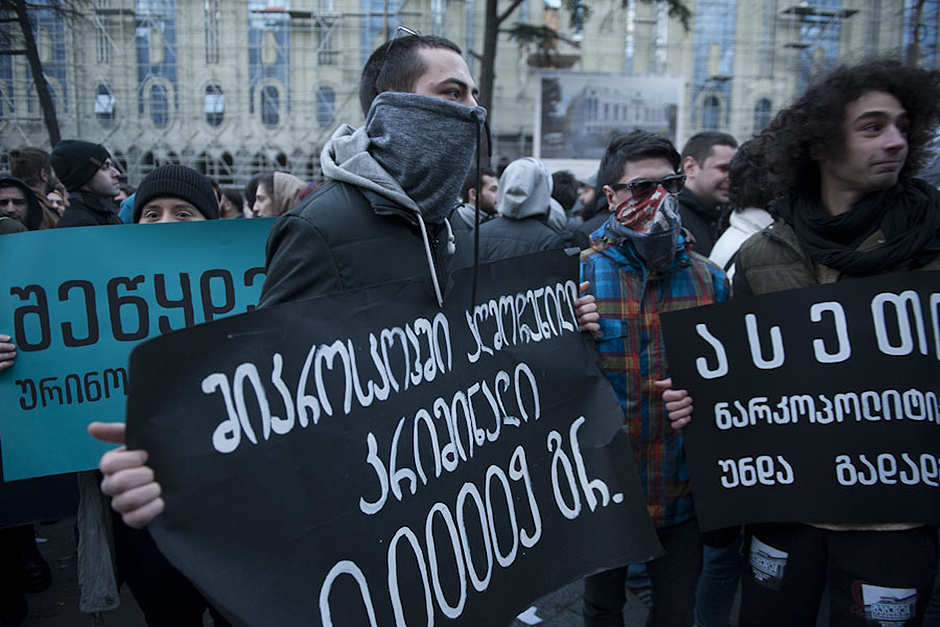
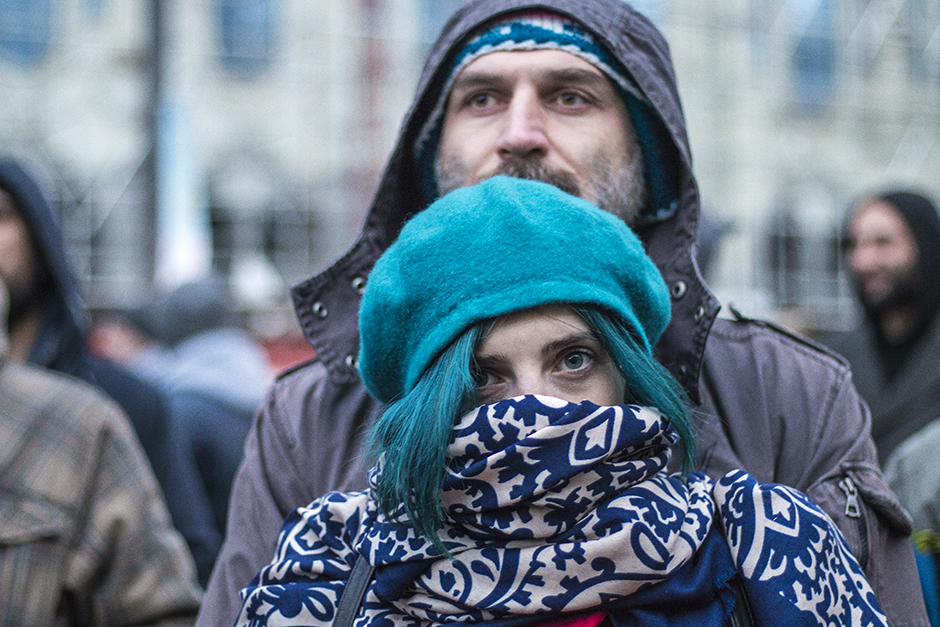
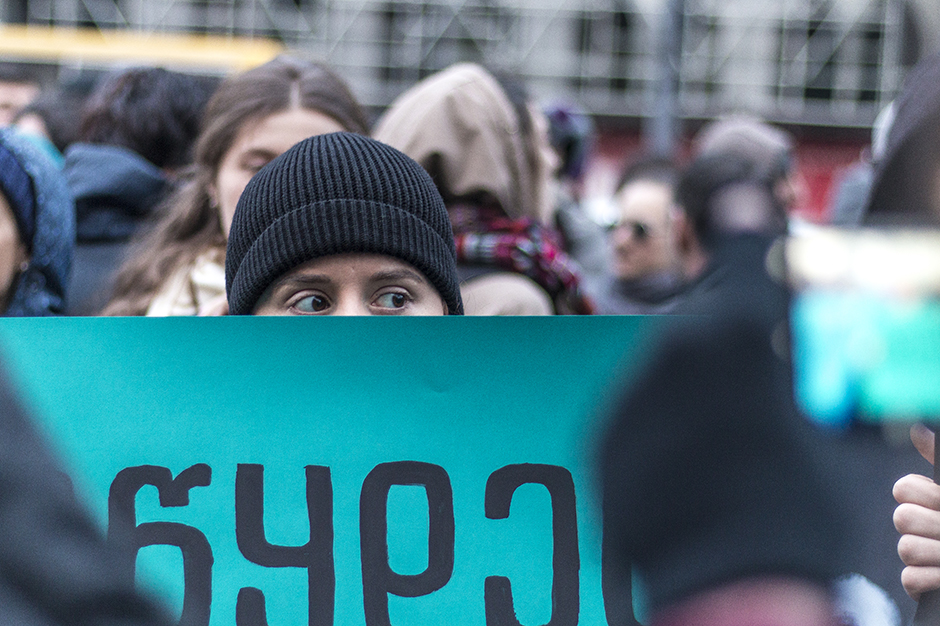
«We joke that sometimes we need only 10 minutes to get the man out of police station»
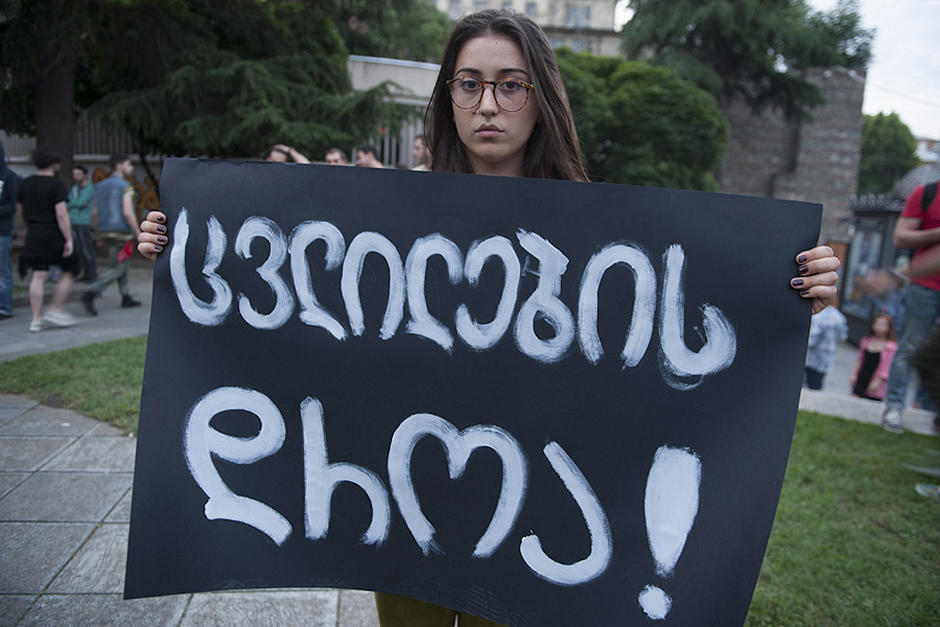
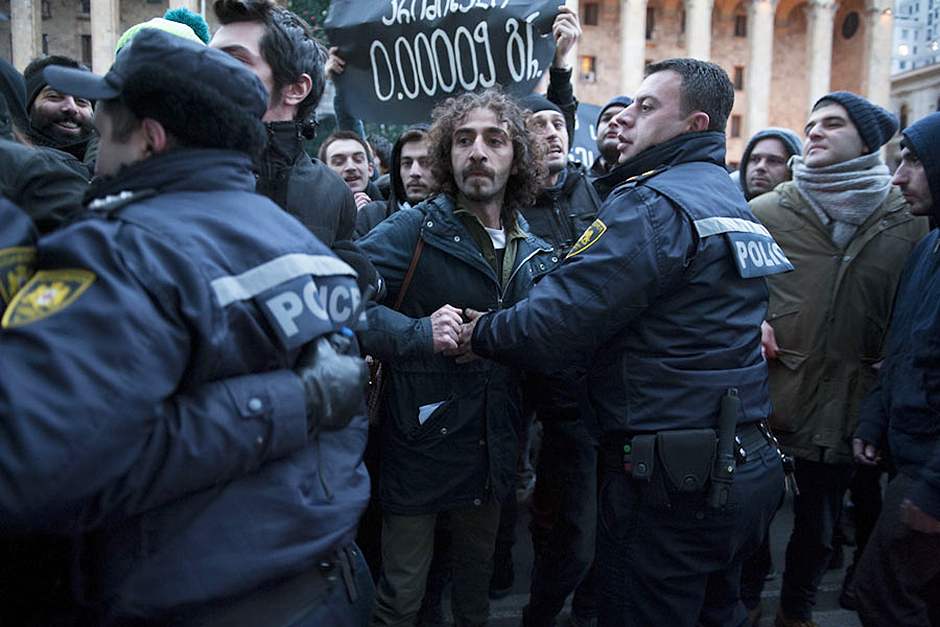
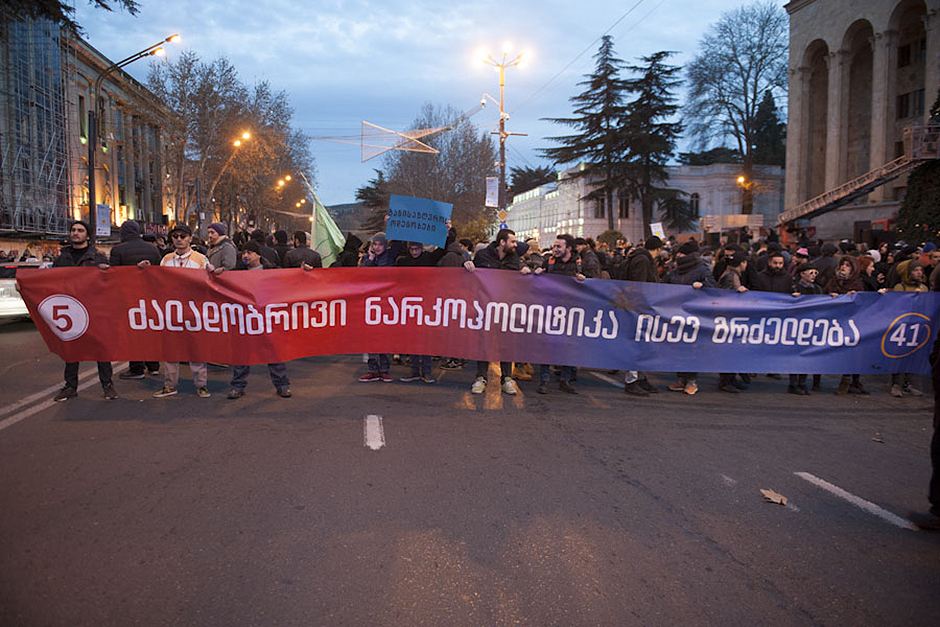
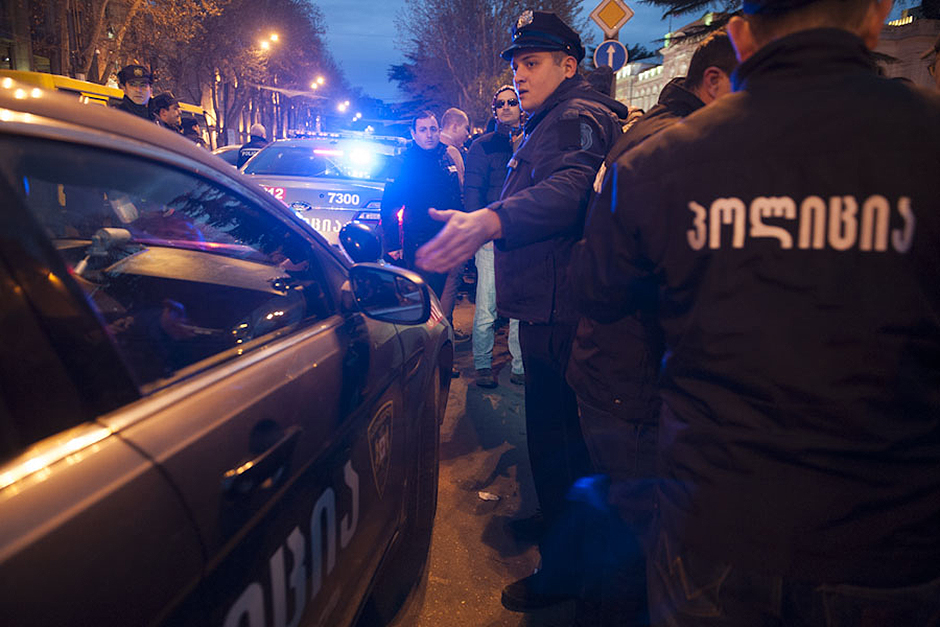
− What is this street testing for drug use? How does it occur?
− In our country there is a unique approach, when people are taken off the street just for testing. Actively, for no reason, without any discredit. And only 30 percent of them will be revealed some traces of drug use. We conducted a long campaign against street testing and have achieved a lot: the number of people who are taken to the police laboratories, has significantly decreased by at least 50 percent. But all the time police are trying to find new ways to punish people.
They can just come to you at the street and say: “Hey, seems you are high, follow me.” But there are constitutional rules that allow to resist. You can say you won’t give your urine for analysis because it can be used against you. After our information campaign, people refused to pass urinalysis at police stations. But police pressure on them, threaten the family. For them, this is a way of making statistics and filling the courts.
Now people are almost never taken to street test. Firstly, because we have created a precedent in the Constitutional Court. Secondly, people become more proficient about their rights, they know they can refuse. Thirdly, we react promptly on the spot. When friends or relatives of people who were grabbed by the police, call, we immediately go there, attract media attention, create a hype. We joke that sometimes we need only 10 minutes to get the man out of police station. Sounds weird, if to think about it.
As in many other countries, which pursue tough drug policy, the poor suffer the more. Tbilisi, central regions still adapt somehow, people find money, try to defend themselves. But in regions, people without income, without property spend years behind bars.
It reminds combat actions, battle field. And there already have been tragic cases. A 50-year-old Lyavan Abziyanidze was coming home at night, tired and poor. Police stopped him and asked to do the test, he refused and was taken to the police station, where he spent a couple of hours. He could not pee because he had problems with blod pressure. They gave him diuretic pills that affect blood pressure, took urine and soon released. And on the way home, he died right on the street. It was a long investigation. We insisted that the state killed the man. A few days ago we got the answer from the officials that these pills couldn’t lead to his death. But we doubt the expertise. However, that is not a question.
Another man, a young guy committed a suicide after he was chased by the police officer. The guy left a letter to his mother, where all the persecutions and threats were described in detail. A very dark, dirty story. We came to this city, held a rally in front of the police station. We clashed with the police, and wrote on the police officer’s car he is a murderer. After we left the city, the police began to arrest our comrades. We went back and released all the detainees with the help of media.
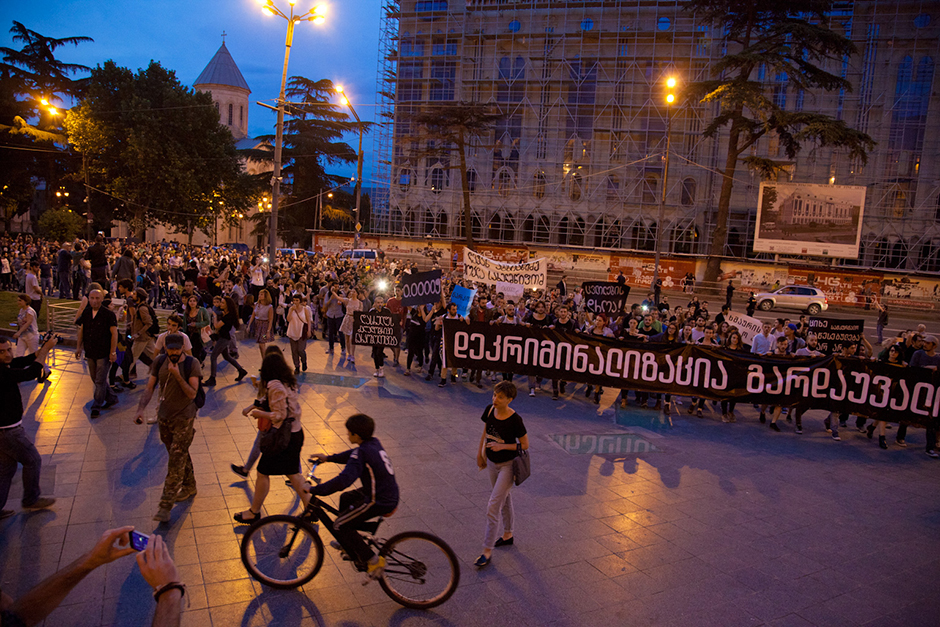
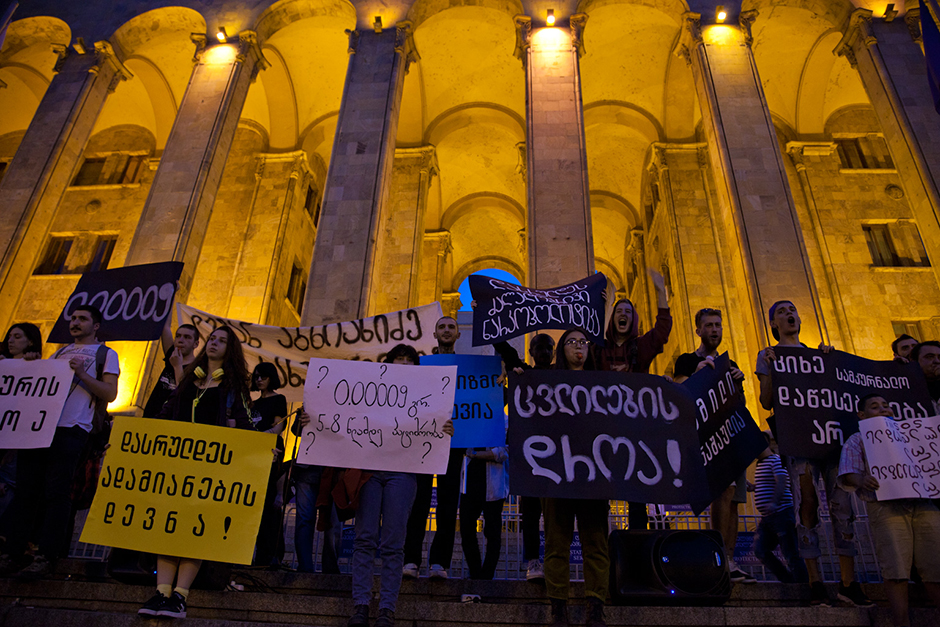
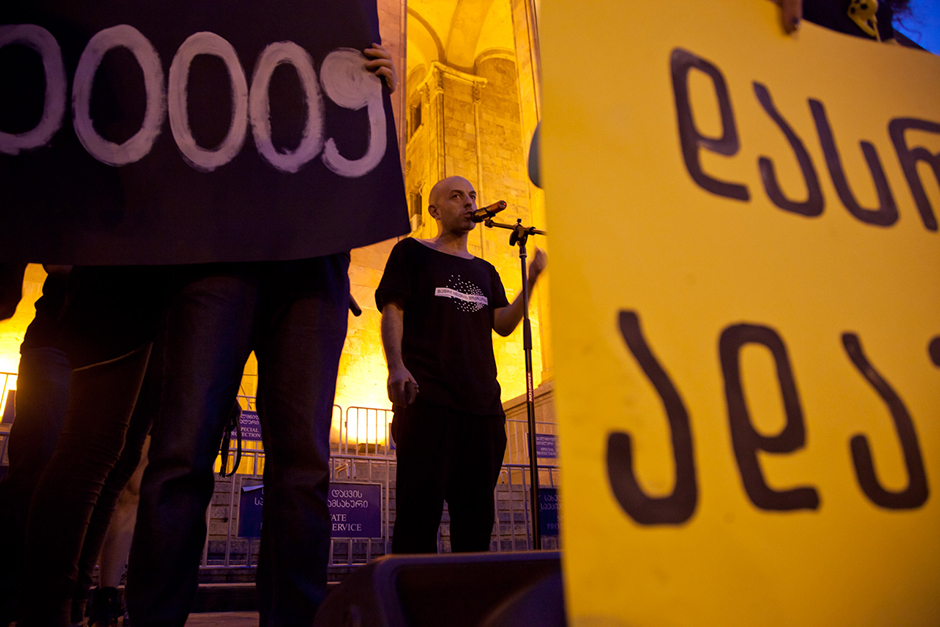
− How does “White Noise” convey their demands to the authorities? What, in addition to information campaigns and street protests, are your methods?
− The last year and a half is a very significant time for our movement. In addition to the media, street companies, we work with experts, NGOs and government representatives. We’ve worked on the bill draft with a proposal of carrying out drug policy ways in the country, drug abuse prevention, replacement of imprisonment, street testing termination. We strongly rely on the Portuguese experience in drugs decriminalization, which focuses on the social assistance system aimed at the drug users. We look forward to changes in April-May.
Plus, we demand to change laws prohibiting drug users to work as drivers, because there is no other work but to drive a tractor or truck in regions. If you think that drug use is a disease, but do not give any treatment and do not let to work, what do you expect from these people? Of course, they will use even more and will sell TV-sets to buy a dose.
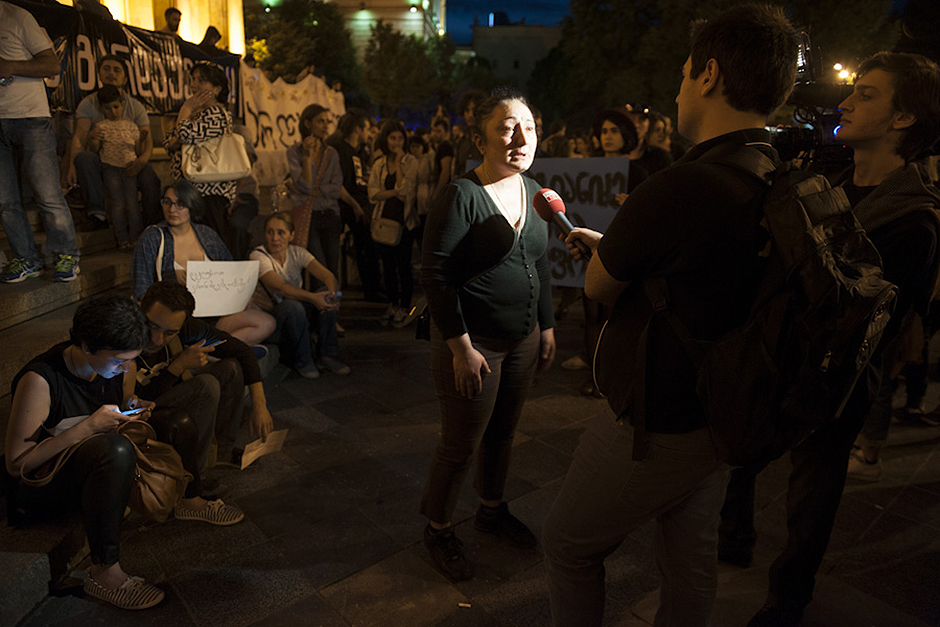
We work closely with the Parliamentary Committee of Health and Social Protection. These are the best people in Parliament who come out openly on our side. After all, it directly concerns health issues. At the same time, there are reverse processes in the government: Minister of Justice and Minister of Internal Affairs keep pushing the decriminalization back. Like “We know it must be done, but we're not ready for it”. They offer to postpone it for years. The typical thing you can hear. Politicians pretend to cooperate, but in fact, they are simply trying to calm us down.
We have a lot of support from media, we are invited to TV-shows and debates, we have experts. There are also street activists. We strive to think outside the box. We even don't have much money! Some of the companies are held with zero funding. Large-scale commercial partners support some actions. If we need a generator to the speakers on the street action, and we don’t have 600 GEL, we ask to pay later. And a man answers: “You are doing such a thing, let you just pay for the gasoline and I will give you the generator gratis”.
«We work closely with the Parliamentary Committee of Health and Social Protection. These are the best people in Parliament»
Now we negotiate with the ombudsman to place ads in the police stations. He has the legal right to put whatever he wants, in every public institution, including the police. Can you imagine what kind of madness it will be!
Sometimes I am very tired and want to spend time with family and children, I have three kids. But when see such solidarity, I can't sleep well. Now we feel personal pressure on ourselves before this final battle. For them, a logical move is to show that some of us take part in something very bad, drug distribution and so on. That's why, we strive to be accurate. But the political situation in Georgia is changing very quickly. They say, the political crisis will happen, the prime minister can retire. If this happens, it will be very bad for us. If the current system begins to change, they will not be up to our reforms. So for us it's a bit tragic situation.
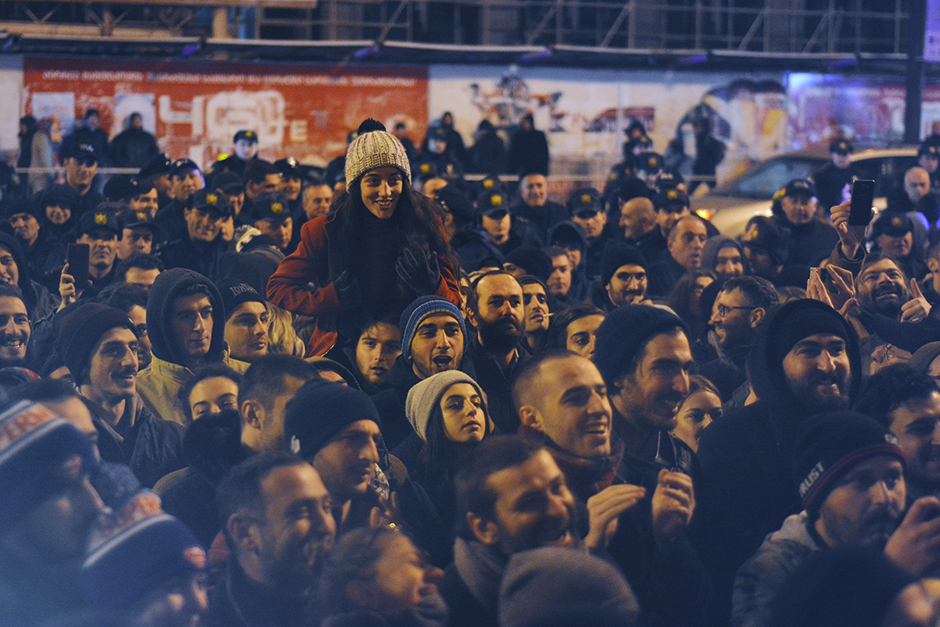
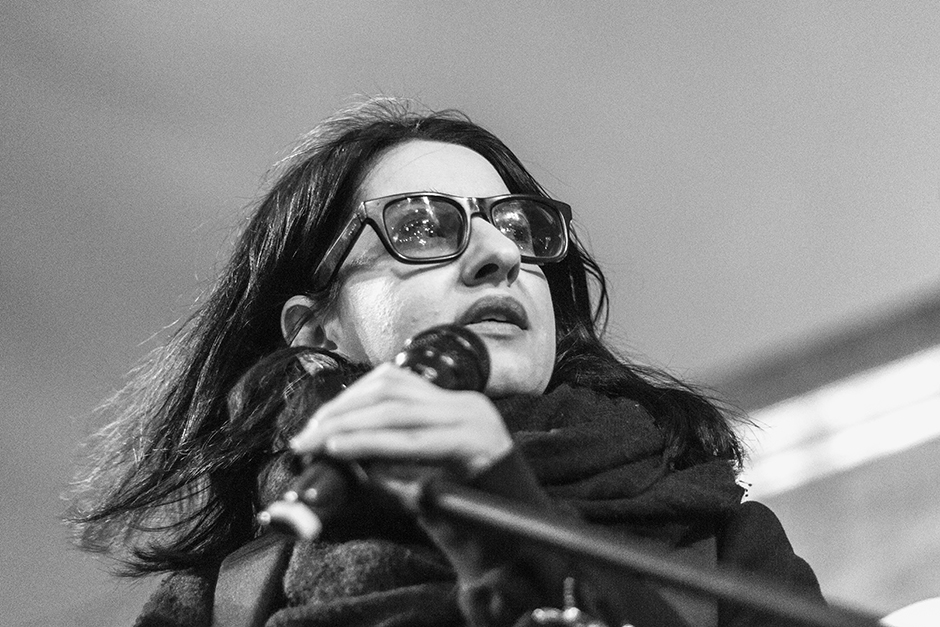
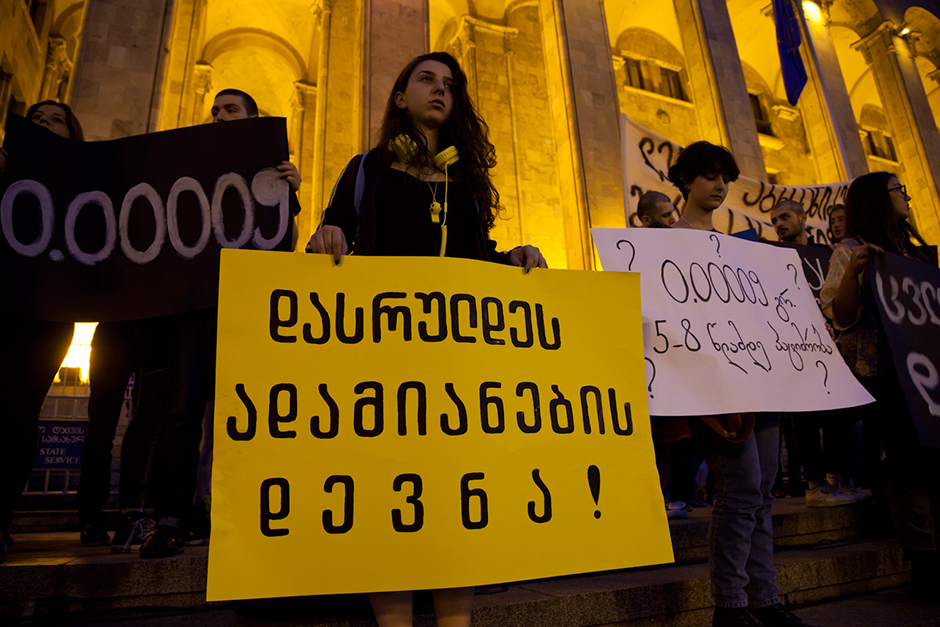
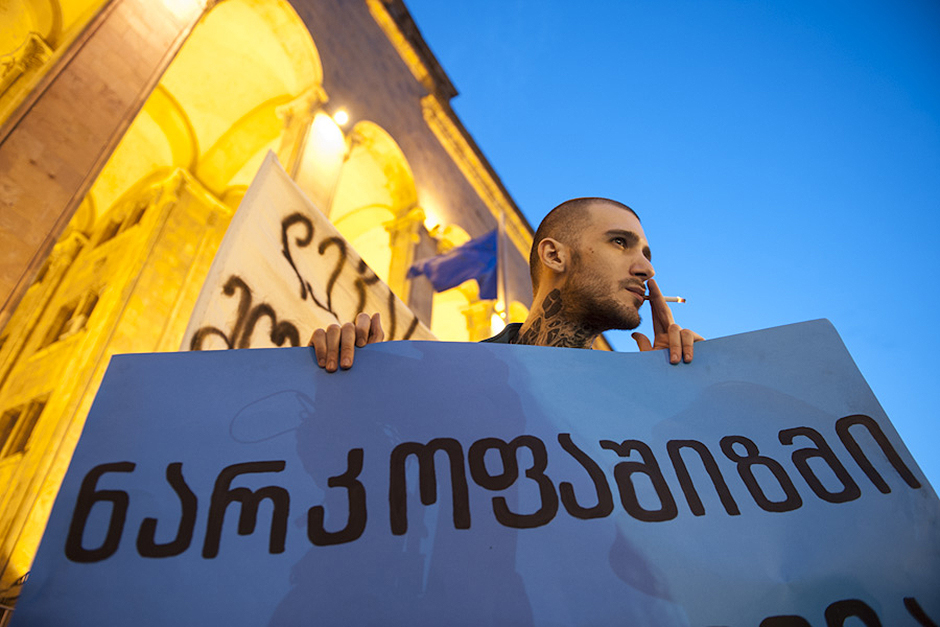
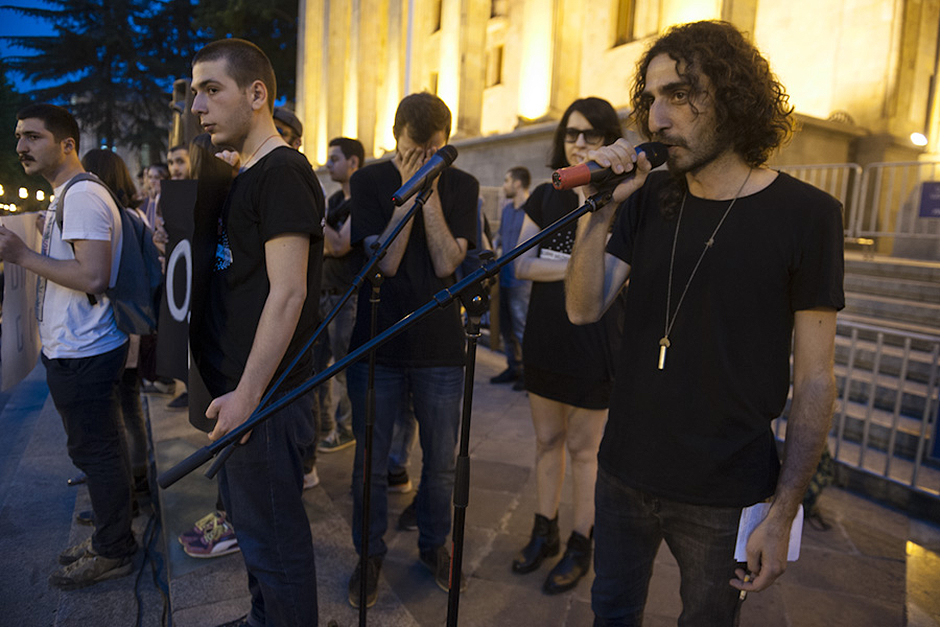
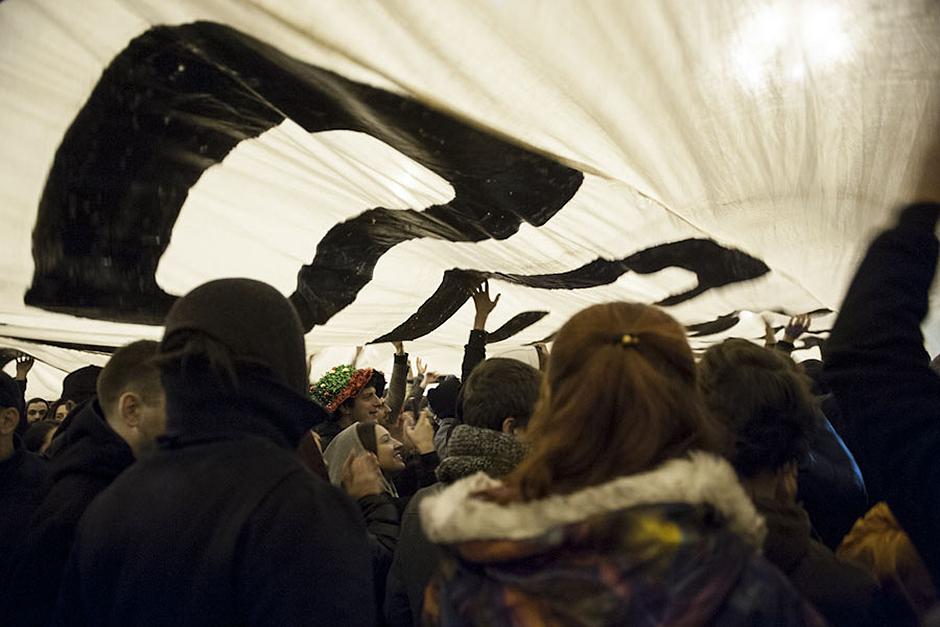
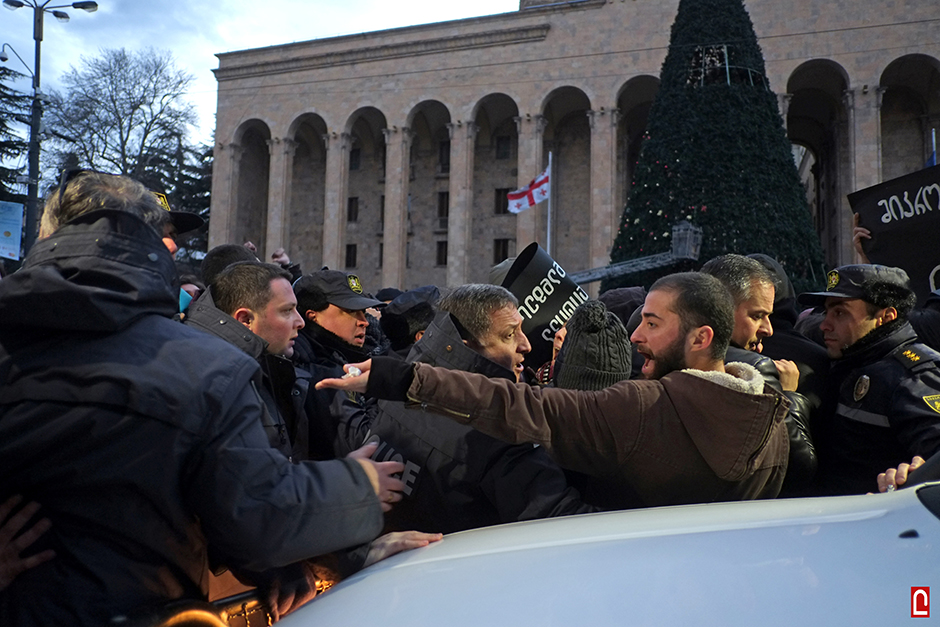
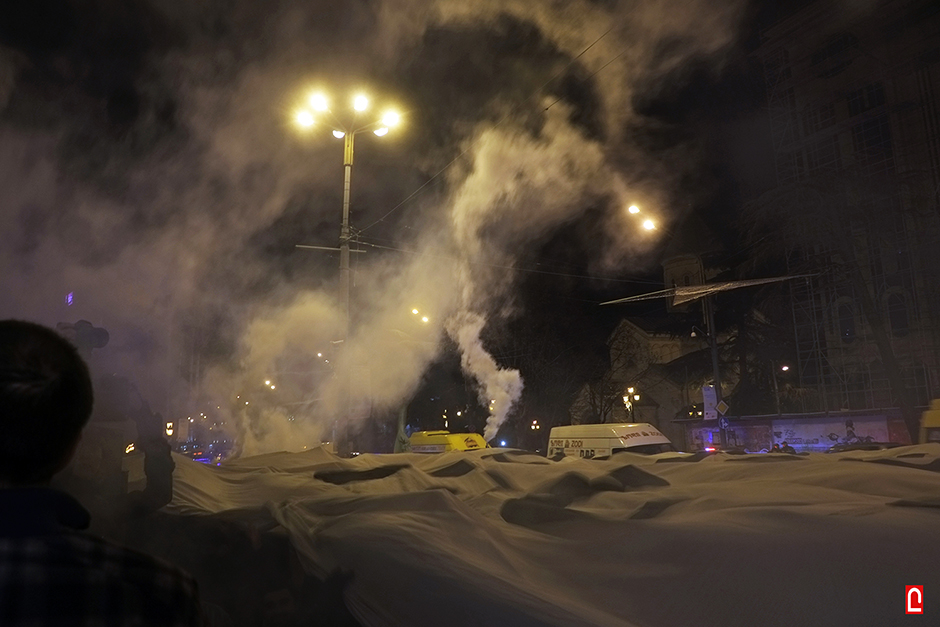
Read more:
«Уключаючы яе імя і твар» – комікс пра Менск, закаханасць і маладосць
Калі б Скот Пілігрым раптам апынуўся ў Менску.
Порно-преступники
Журналист Алесь Кирикович – о том, почему размытые законы с нечеткими формулировками и есть самый главный отечественный жанр порно.
Стартаваў праект, які агучвае творы рэпрэсаваных у 1930-х аўтараў
«Літаратура пра адчуванне часу тых, каго мы заўчасна страцілі».
Molchat Doma выпусцілі чацвёрты альбом
«Белая паласа» – файная абноўка ў восеньскі плэйліст.
On main page:
Maria Gulina: art management from eco-art to socially engaged practice
A journey from local environmental workshops to art management and working with socially engaged photography in an international gallery.
Emil Zenko: "It's satisfying to learn that someone bought your vinyl without having a record player"
The conversation about filming in a Belarusian village, the kitchen of ideas and the search for funds.
Timeline: How Belarus (Doesn’t) Fight Domestic Violence
A story about (or no) cooperation between government representatives, NGOs and ordinary people that care.
Why are gay people being detained in Azerbaijan?
Javid Nabiyev speaks on arrests of gay people in Azerbaijan, explains the «fucking solidarity» term and the point of activism.
White innocence: fighting racism in the Netherlands
Joris Hanse, Dutch activist from the Doorbraak, speaks about the Netherlands not matching the stereotypes.
In a wolf's skin
A philosophical audio story about a wolf, people who care for it and people who kill it.
COMMENTS (1)
A little weed never hurt no one! Right? I did say a little. There is always exaggeration in politics! I don't like that.
This article was refreshing! They don't allow drugs because they help you see how much you are placed into one state of mind and that your freedom is controlled by force!
I'm a lifestyle blogger I give lifestyle advice for young men check out my site too pls :) https://mr2ndopinion.com